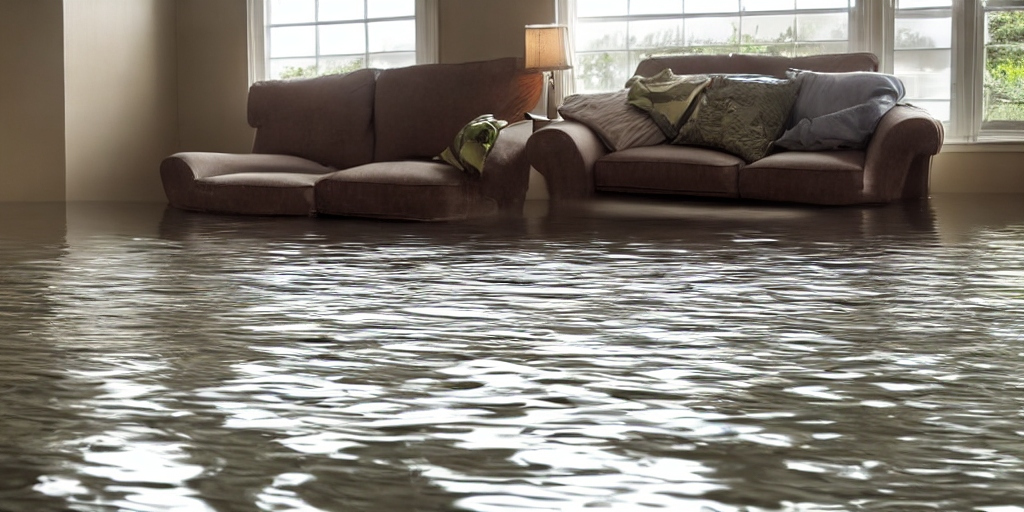Water damage can be a homeowner’s worst nightmare, causing not only structural issues but also potential health hazards. Home water remediation is a crucial process that can help recover from such disasters. In this guide, we’ll explore the steps involved, address common questions, and provide insights into the various aspects of home water remediation.
How do you recover from water damage in your home?
Dealing with water damage in your home can be overwhelming, but a swift and well-executed recovery plan can make a significant difference. The first step is to contact a home water remediation professional as soon as you notice the damage. These experts have the knowledge and tools to assess the extent of the damage and formulate an effective plan.
Home water remediation typically involves the extraction of standing water, thorough drying of affected areas, and sanitization to prevent mold growth. The key is to act quickly, as delays can exacerbate the damage and lead to more extensive restoration efforts.
Also Read: Finding the Best Water Mitigation Company Near Me: A Comprehensive Guide
Can water damage be fixed in-house?
While some minor water damage issues may be addressed through DIY efforts, it’s crucial to recognize the limitations. Home water remediation often requires specialized equipment and expertise to ensure thorough restoration. Hiring a professional ensures that hidden pockets of moisture are detected and addressed, preventing potential long-term problems such as mold growth.
What is the process of remediation of water?
The process of home water remediation typically begins with a detailed assessment of the damage. Professionals use advanced equipment like moisture meters and infrared cameras to identify hidden water pockets. Once assessed, the water extraction process begins, followed by structural drying and dehumidification.
How do you remove water damage from a house?
Removing water damage from a house involves a systematic approach. After the initial extraction and drying, damaged materials may need to be removed and replaced. Mold remediation is also a critical step, ensuring that the indoor environment is safe and healthy.
In the next sections of this guide, we’ll delve deeper into the specifics of home water remediation, addressing common concerns such as home water remediation cost, available home water remediation near me services, and the distinction between water mitigation vs remediation. Stay tuned for valuable insights into the world of water damage restoration.
Home Water Remediation: Exploring Essential Aspects

Home Water Remediation Cost
One of the pressing concerns for homeowners facing water damage is the cost of remediation. Home water remediation cost can vary based on factors such as the extent of the damage, the materials affected, and the specific services required. It’s essential to understand that investing in professional remediation services can save you money in the long run by preventing further damage and potential health issues.
Home Water Remediation Near Me
When water damage strikes, time is of the essence. Searching for “home water remediation near me” is a critical step in ensuring a swift response. Local professionals can quickly assess the situation and initiate the necessary steps to mitigate and remediate the damage promptly. Consider keeping contact information for reliable home water remediation companies in your area readily available to expedite the response time in case of emergencies.
Home Water Remediation Companies
Choosing the right home water remediation companies is crucial for effective restoration. Look for companies with a proven track record, appropriate certifications, and positive customer reviews. A reputable company will not only address the visible damage but also employ comprehensive strategies to prevent secondary issues like mold growth.
DIY Home Water Remediation
While some minor water damage issues can be addressed with a DIY approach, it’s essential to exercise caution. DIY home water remediation may not be sufficient for significant damage, and improper techniques can lead to further problems. When in doubt, it’s best to consult with professionals to ensure the thorough and safe remediation of your home.
Water Damage Restoration Protocol
Understanding the water damage restoration protocol is vital for homeowners. This protocol typically involves assessment, extraction, drying, repair, and restoration. Following a systematic approach ensures that all aspects of water damage are addressed, providing a comprehensive solution to protect your home and its occupants.
How Long Does Water Damage Restoration Take?
The duration of water damage restoration varies depending on the extent of the damage. A minor incident might take a few days, while more severe cases could extend the process to several weeks. Swift action in the early stages can significantly reduce the overall restoration time and prevent further complications.
Also Read: Flood Damage Cleanup Near Me: A Comprehensive Guide to Restoration
Water Mitigation vs Remediation
It’s common to hear terms like water mitigation vs remediation when dealing with water damage. While mitigation focuses on preventing further damage by taking immediate actions, remediation involves the complete restoration of the affected areas. Both are integral parts of the water damage recovery process, emphasizing the importance of both prevention and restoration.
In the upcoming sections, we’ll delve deeper into each aspect of home water remediation, providing valuable insights into the factors influencing costs, the benefits of professional services, and practical tips for homeowners. Stay tuned for a comprehensive exploration of water damage restoration.










